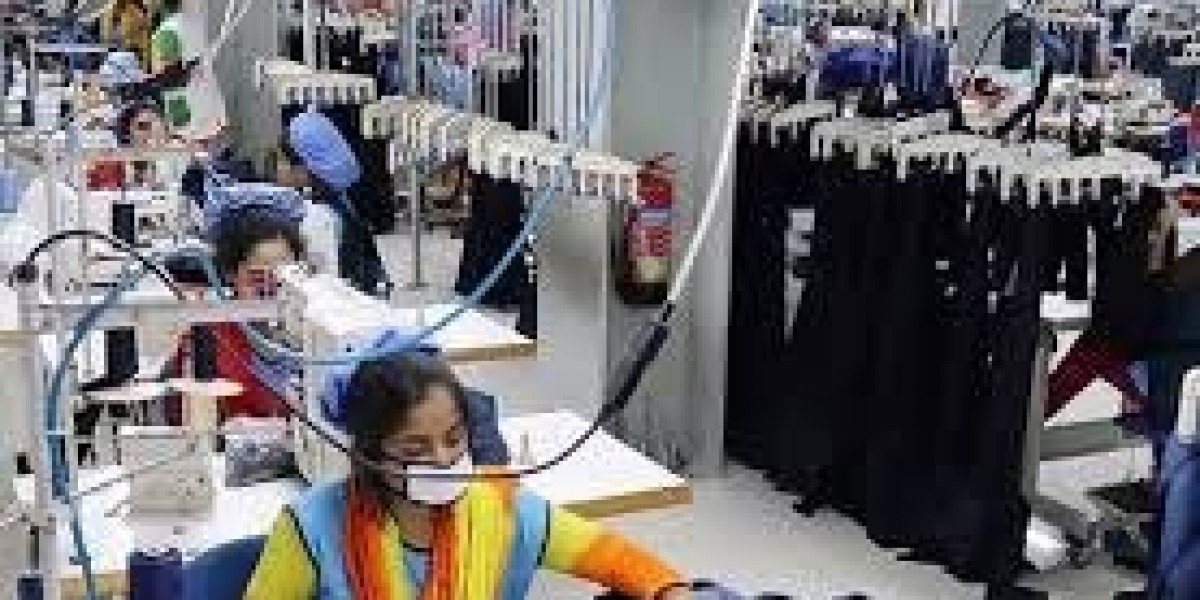Private Label Clothing Manufacturing has emerged as a popular concept for numerous established and up-and-coming firms in the constantly changing fashion industry. Businesses can make personalized clothing using this method without having to possess a manufacturing facility. Rather, they collaborate with skilled manufacturers who assist them in transforming their design concepts into superior final goods. Building a profitable fashion brand, lowering production risks, and providing consistently high-quality products all depend on an understanding of the private label clothes manufacturing process.
What is Private Label Clothing Manufacturing?
Private label clothing manufacturing is a business model where fashion brands outsource the production of their garments to third-party manufacturers. These manufacturers produce clothing based on the brand's specifications, such as fabric type, color, design, size, and label. The finished products carry the brand’s name and identity but are made by a private manufacturer behind the scenes.
This approach offers several advantages:
- Brand Control: You retain full ownership of the brand and its image.
- Cost-Efficiency: Reduces upfront investment in factories or equipment.
- Speed to Market: Fast turnaround times from design to delivery.
- Scalability: Easily increase or reduce order volumes based on demand.
Step-by-Step Breakdown of the Private Label Manufacturing Process
Here’s a comprehensive look at the typical private label clothing manufacturing workflow:
1. Concept & Design Development
This is where your brand vision comes to life. You'll define:
- Clothing type (e.g., t-shirts, jackets, hoodies)
- Style and fit
- Color palette
- Materials and fabrics
- Branding elements (tags, packaging, embroidery)
At this stage, creating detailed tech packs or design briefs is crucial. These documents guide manufacturers and ensure accuracy in production.
2. Sourcing Materials
Once your design is finalized, the manufacturer sources raw materials based on your preferences. If you want eco-friendly cotton, durable polyester blends, or luxury silks, your manufacturer can find the right fabric suppliers. Quality sourcing is essential to ensure product durability and brand consistency.
3. Sample Development
The manufacturer produces initial samples (prototypes) for your review. This is a critical step that helps you:
- Evaluate design accuracy
- Test garment fit and comfort
- Check fabric quality
- Make necessary revisions
You might go through several rounds of sampling before final approval. Once you’re satisfied with the sample, it becomes the production standard.
4. Production
After the sample is approved, the manufacturer begins mass production. Depending on your order size, this could take a few weeks to a couple of months. During this phase:
- Fabric is cut, sewn, and assembled
- Branding elements (labels, prints) are added
- Quality checks are performed throughout
High-quality private label manufacturers ensure minimal defects and maintain consistent output.
5. Quality Control
Reputable manufacturers follow strict quality control protocols, inspecting each item for stitching, sizing, and material consistency. If issues are found, garments are either corrected or discarded based on the agreement.
6. Packaging and Branding
Products are packaged with your custom branding. This includes:
- Tags and labels
- Custom packaging (bags, boxes)
- Optional promotional inserts
This step ensures that your products are market-ready and align with your brand image.
7. Shipping and Delivery
Finally, the garments are shipped to your distribution center, warehouse, or directly to your customers, depending on your logistics setup. Manufacturers may also assist with international shipping and customs clearance.
Choosing the Right Private Label Manufacturer
Not all manufacturers are the same. Choosing the right partner is essential for a smooth production process and high-quality output. Here are factors to consider:
- Experience: Look for manufacturers who specialize in the types of garments you want to produce.
- Minimum Order Quantities (MOQs): Choose a partner whose MOQs align with your budget and production needs.
- Communication: Strong communication and responsiveness are key to resolving issues quickly.
- Sample Policy: Ensure they offer sample development and allow changes before final production.
- Certifications: Eco-friendly or fair trade certifications can be a plus if your brand values sustainability.
Benefits of Private Label Clothing Manufacturing
Private label manufacturing offers a flexible, efficient way to build a fashion brand. Key benefits include:
- Customization: Create unique designs that reflect your brand identity.
- Faster Launch: Get products to market faster than starting your own factory.
- Focus on Branding: Spend more time on marketing and sales, while manufacturers handle the technical side.
- Lower Risk: Avoid heavy investment in machinery and labor.
Common Challenges (And How to Avoid Them)
While private label clothing manufacturing has many advantages, it also comes with potential pitfalls:
- Miscommunication: Vague instructions can lead to production errors. Always use detailed tech packs and confirm specifications.
- Delays: Production timelines may be affected by fabric shortages, holidays, or factory capacity. Build extra time into your launch schedule.
- Quality Inconsistency: Work with reputable manufacturers who provide transparent QC processes and samples.
Building a strong relationship with your manufacturer and maintaining clear communication is key to long-term success.
Conclusion
Understanding the private label clothing manufacturing process is essential for any fashion entrepreneur. It empowers you to make informed decisions, manage production efficiently, and maintain high standards. From design and sourcing to quality control and delivery, each step plays a crucial role in building a successful clothing line.
By partnering with the right manufacturer and staying involved in the process, you can bring your creative vision to life and establish a strong, competitive fashion brand. Whether you're entering the fashion world for the first time or looking to expand your existing brand, private label clothing manufacturing offers the flexibility and control needed to succeed.






